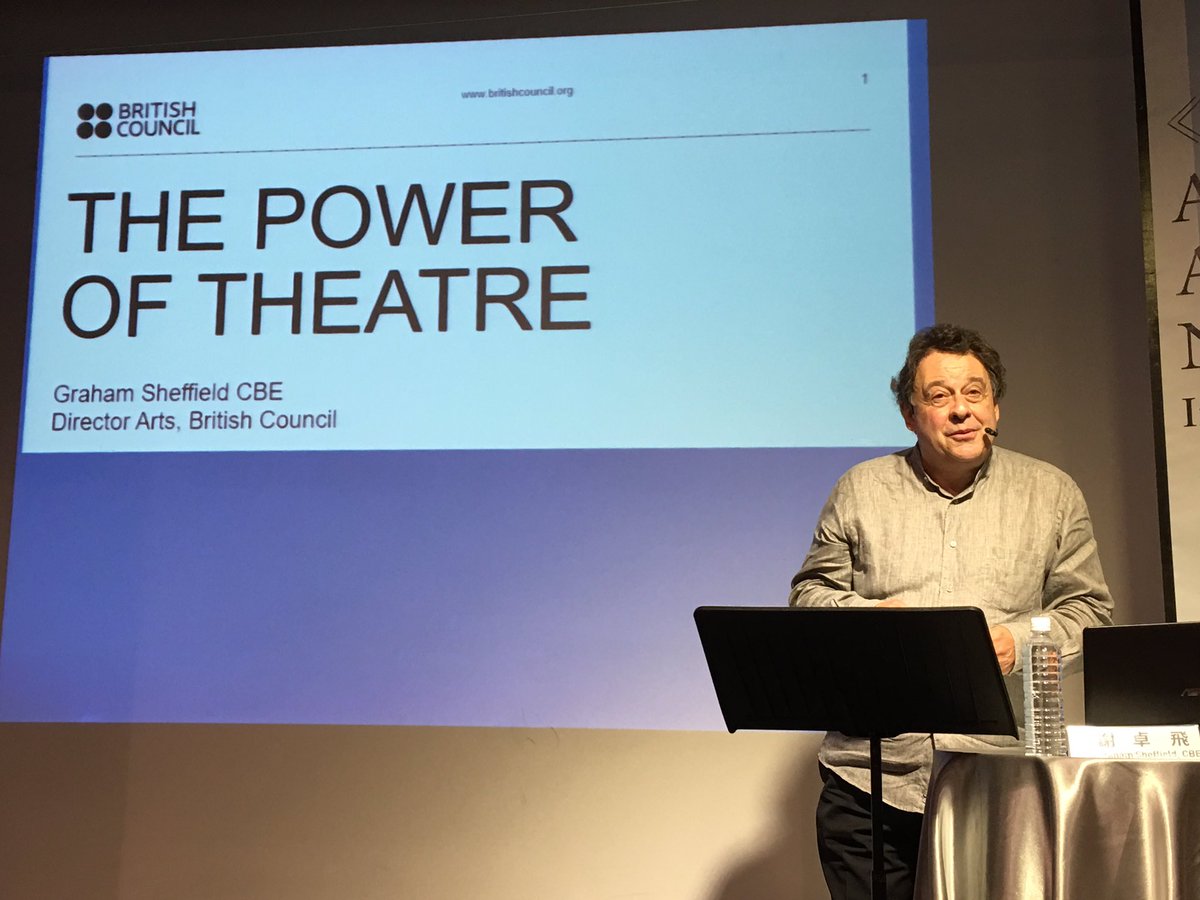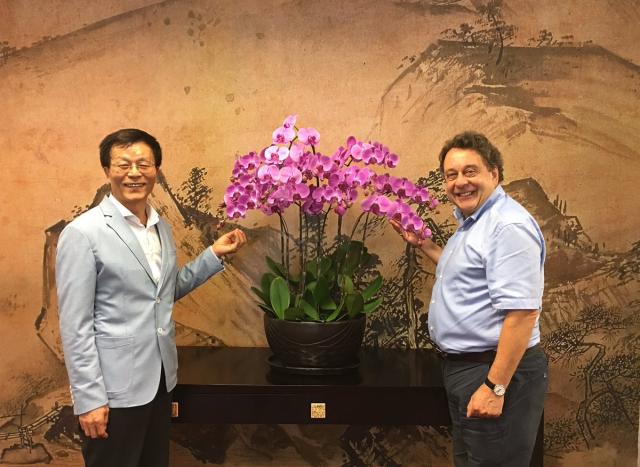Is it a nation? What exactly is its status? What kind of international influence does it hold?
These are some of the questions that immediately face you on arrival – my first ever trip – to this fascinating part of the world. A complex and sometimes bloody colonial past, ongoing relationship issues with its powerful neighbour, but a friendly and outgoing people, many with good English, the world's 19th largest economy and the 13th "easiest" place to do business. A parliamentary democracy with greater personal freedoms than anywhere else in East Asia.
I was there at the invitation of the new National Taichung Theatre (designed by Toyo Ito) to give a speech on the Power of Theatre – click here to read it now.
It's a remarkable building – fluid inside, all curves and caves, with three performance spaces, and acres of public space filled with retail propositions of dubious taste and usefulness. I was pleased to see Taiwanese indigenous artists given a platform at the opening, and playing an increasingly important part in Taiwan's cultural development in general.
Taichung is making a case for itself as a major cultural centre, with an excellent Art Museum as well as the Theatre complex: so too is the southernmost city Kaoshiung, where new arts facilities open very soon, including one with a nightly capacity of 6000 people.
One hour on a clean, punctual, high-speed (sigh) train takes you to the capital Taipei, where on arrival we went straight to see the Gandini show (a spirited juggling and contemporary dance melange) in the Taipei Arts Festival, booked from the last British Council Showcase in Edinburgh.
We also met several stakeholders and partners from the Festival, from City Government, from the National Palace Museum (astounding collection), from the new Koolhaas designed Taipei Arts Centre (due to open in 2018), the National Theatre, members of the Parliament, and the management team of a brilliant piece of historical cultural regeneration in an extensive old Tobacco Factory in central Taipei.
We also had useful talks with leaders in contemporary design (Taipei is World Design Capital this year), and most significant an exploratory meeting with the team involved in a charity looking at issues, including the arts, around ageing. The figures around Taiwan's ageing population are staggering, and this is an area where they are trying to come up with major new initiatives.
Overall an eye-opening and enjoyable week: in terms of major Asian cities Taipei has a lot going for it – less pollution, excellent public transport, lightish traffic, excellent food, friendly people. Once there's a direct flight from the UK (from next year, I gather) more people from the UK should go and explore – not only the major cities, but its amazingly rich and diverse heritage.
One trip I made – slightly outside our remit – was to see an old acquaintance, the world renowned dance director Lin Hwai Min of the Cloud Gate Theatre Company. He is a fairly regular visitor to London and we presented them at the Barbican two or three times, whilst I was Artistic Director.
He invited me to see his new theatre, on the outskirts of Taipei, bizarrely (but picturesquely) situated between a golf course and an 18th century fort. His old theatre burned down (except for the two masks in this picture that were rescued) and they've built a new centre with a remarkable spirit, home to new creativity and lots of visits by local schoolchildren: it was an inspiring morning, topped off by some excellent Taiwanese dumplings!

